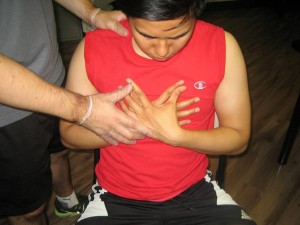The very idea of having a heart attack is enough to give most people nightmares. However, it can and does happen to people of all ages and all walks of life, often without any previous warning that anything is wrong. Heart attacks still kill more people than anything else in the United States. The question is, how do you know whether or not you might be having one? Are you at risk? If you do have one, what are the medical complications you might experience? More importantly, how do you prevent one from occurring? If you have one, what can you expect life to be like afterward?

Signs a heart attack is occurring
Most people experience chest pain or discomfort. They may have shortness of breath or break out into a cold sweat. If you are having a heart attack, you might feel a lot of pressure on your chest. Some people describe it as a vice that is squeezing their heart. In addition, you may experience extreme fatigue that is not relieved by rest or you may feel generally ill without being able to point to anything more specific. You might even notice that your heart is beating abnormally fast or that it isn’t beating regularly. However, some people don’t have the classic symptoms. In fact, there are some individuals who have virtually no symptoms at all. This is known as a silent heart attack, something that can be extremely deadly because you can’t get the life-saving treatment you need if you don’t realize what is happening.
Who’s at risk?
If you have a history of heart disease in your family or you smoke, you’re at risk. The same is true for anyone who is over 40 years of age, is diabetic, or overweight. However, not all of the risk factors are associated with the above conditions. If you have a high-stress job or you have a job that puts you at risk, like firefighting, you have a markedly increased risk for having a heart attack.
Complications
The severity of complications depends on how severe the heart attack was and the part of the heart muscle that was affected, as well as how fast treatment was received. You may have no lasting damage and be able to resume a normal life after recovery. On the other side of the spectrum, you may experience severe weakness, an inability to participate in physical activity, or even breathe normally. In the worst cases, you might experience severe and potentially fatal cardiac arrhythmia (irregular heartbeat), heart failure, or even rupture of the cardiac muscle. You are also more at risk for having a second heart attack.
How do you cope?
Having a heart attack can deal a real blow to both your physical and mental health. You might start to feel as though you have a ticking time bomb right there in your chest that could go off at any minute. Your actual recovery depends on how much damage was done to your heart in the first place. The idea is to regain as much of a normal life as possible, something that can be done in most cases.
In conclusion, your best bet is to prevent a heart attack from happening in the first place. Eat well, stay active, and get plenty of rest. Manage your stress level and get regular checkups to ensure that your heart is healthy. If you do have a heart attack, get treatment and follow doctor’s orders. Some people live happy lives for many years after a heart attack while others do not survive. That is why it is so important to manage your health before one happens to you.
Related Video
FACT CHECK
https://www.medicalnewstoday.com/articles/151444.php
